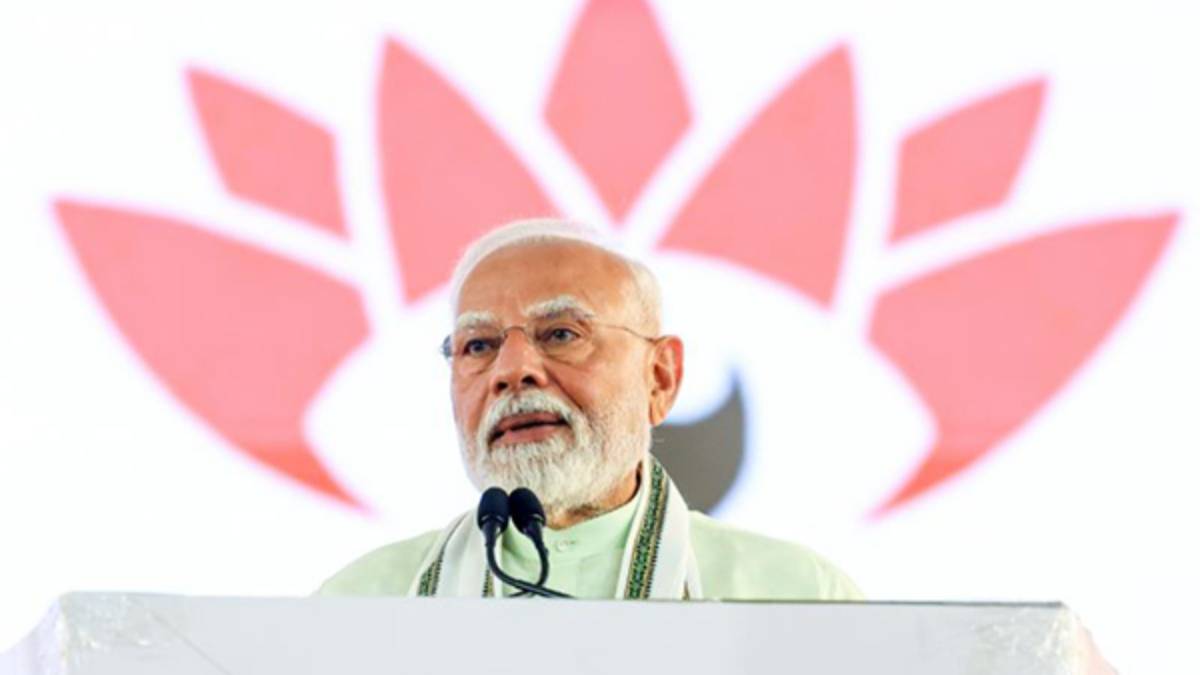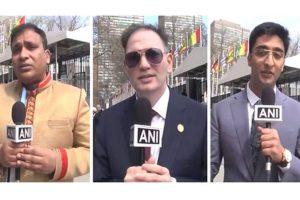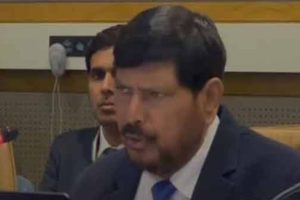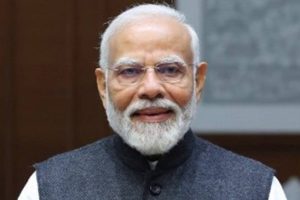On the 105th anniversary of the Jallianwala Bagh massacre, Prime Minister Narendra Modi paid heartfelt homage to the victims, calling the tragedy a “dark chapter” in India’s history and a major turning point in the nation’s freedom struggle.
In a post on X, PM Modi wrote, “We pay homage to the martyrs of Jallianwala Bagh. The coming generations will always remember their indomitable spirit. It was indeed a dark chapter in our nation’s history. Their sacrifice became a major turning point in India’s freedom struggle.”
Other leaders echoed similar sentiments, honouring the memory of those who were killed on April 13, 1919, during a peaceful gathering in Amritsar, Punjab.
Union Home Minister Amit Shah stated, “The Jallianwala Bagh massacre is a dark chapter in India’s freedom struggle that shook the entire country. The anger that arose among the countrymen turned the freedom movement into a mass struggle.”
Union Minister Dharmendra Pradhan paid tribute, adding that the brutality of British rule that day sparked a fierce national consciousness. “India will forever remain indebted to them. May the sacrifice of the brave men, women and children inspire us to protect our sovereignty, inclusivity and freedom.”
External Affairs Minister S. Jaishankar also honoured the martyrs, saying their “determination, courage and sacrifice for our freedoms will never be forgotten.”
The massacre occurred when British officer Brigadier General Reginald Dyer ordered troops to open fire without warning on a peaceful crowd protesting against the Rowlatt Act and demanding the release of local leaders Dr. Satyapal and Dr. Saifuddin Kitchlew. According to the Ministry of Culture, around 1,650 rounds were fired, ceasing only after the ammunition ran out.
Official British figures cited 291 deaths, but Indian leaders, including Madan Mohan Malviya, estimated the toll to be over 500. Dyer, when questioned by the Hunter Commission, showed no remorse, reportedly stating, “It was not my job [to help the wounded]. Hospitals were open, and they should have gone there.”
The colonial administration endorsed his actions. Then-Lieutenant Governor Michael O’Dwyer sent Dyer a message saying, “Your action correct. Lieutenant-Governor approves.” Years later, Udham Singh avenged the massacre by assassinating O’Dwyer in London.
The brutality led Rabindranath Tagore to renounce his Knighthood in protest. The site now houses a memorial established in 1951 and the Yaad-e-Jallian Museum, inaugurated in 2019, which preserves the tragic legacy and spirit of resistance and patriotism.
The Jallianwala Bagh massacre remains a powerful symbol of sacrifice and continues to inspire generations to value and defend India’s freedom and democratic values.





